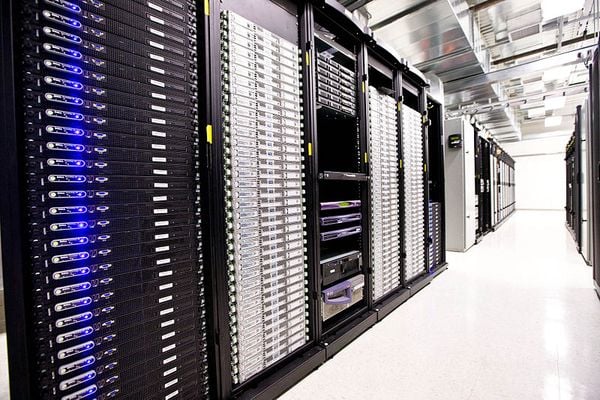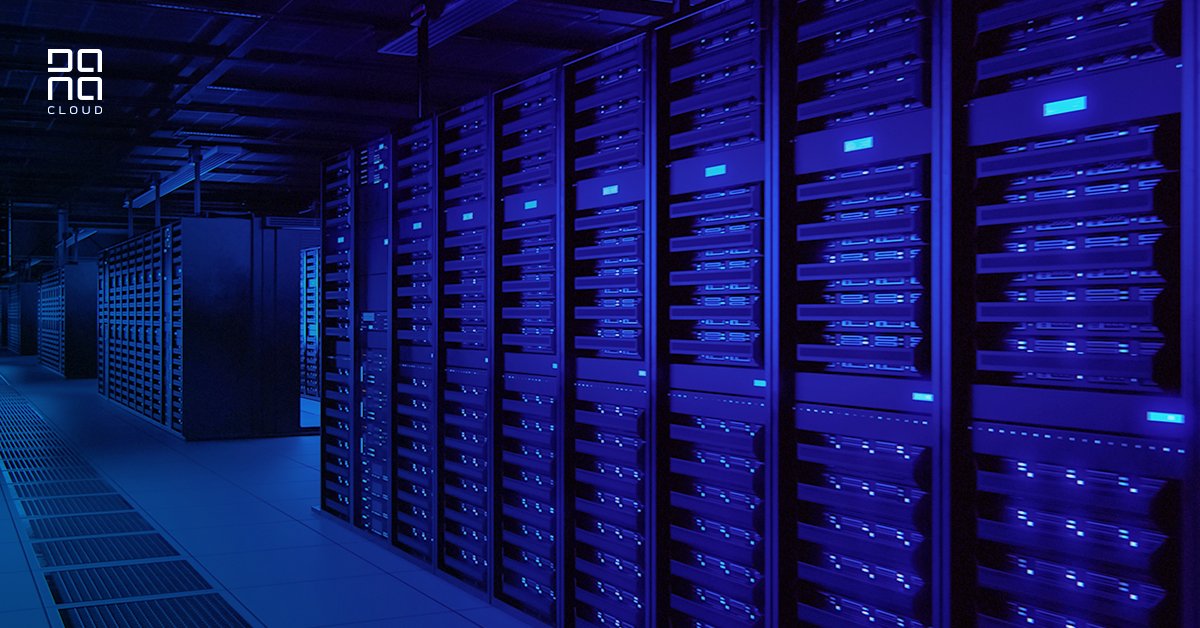As you probably know, data centers are facilities where companies and organizations keep their data and computing processes safe and secure while having on-demand access to them all the time. One of the main types of data centers is a “colocation.” This one is a facility where businesses can rent space for their own servers and equipment while benefiting from shared infrastructure. In this article, we’ll explore the different types of colocation data centers and their key benefits. Keep reading to discover why more companies are choosing colocation to meet their evolving needs.
| Feature | Description |
|---|---|
| Definition | A shared facility where businesses can rent space for their IT equipment. |
| Benefits | Cost savings, scalability, enhanced security, reliability, connectivity, disaster recovery, and focus on core business. |
| Types | Retail, wholesale, carrier-neutral, and cloud-enabled. |
| Key Difference from Cloud | More control over physical infrastructure, but less flexibility and scalability. |
| Key Difference from Traditional Data Center | Shared infrastructure, lower costs, and reduced management overhead. |
What is a Colocation Data Center
The first thing to know about colocation (or “colo,” as you might have heard in the industry) is that it’s a “shared” center and does not belong to any specific company. Unlike traditional data centers owned and operated by a single company, colocation allows multiple organizations to leverage a state-of-the-art facility without the costs and complexity of maintaining their own. Different tech organizations and companies are able to rent space in the center to house their servers and IT equipment while the provider manages critical infrastructure like power, cooling, and security. The control and accessibility tough, belongs to the owner of the data.
As businesses grow and technology evolves, colocation becomes a crucial strategy for scaling IT infrastructure without the heavy investment of building out in-house facilities.
Read more: What is Hyperscale data center?
Benefits of a Colocation Data Center
Besides being more accessible and easier to maintain, here are some other benefits you’ll gain if you decide to use a colocation data center:
- Cost savings: Avoid the high upfront costs of building and maintaining your own data center by renting space in a shared facility.
- Scalability: Easily expand your IT infrastructure as your business grows without worrying about space, power, or cooling limitations.
- Enhanced security: Benefit from advanced physical and cybersecurity measures that most companies cannot afford to implement on their own.
- Reliability: Colocation centers offer high redundancy in power, cooling, and networking, ensuring uptime and availability.
- Connectivity: Access to multiple internet service providers (ISPs) for better network performance and lower latency.
- Disaster recovery: Colocation centers are designed with robust disaster recovery solutions, ensuring data protection and business continuity.
- Focus on core business: Free up internal IT teams to focus on innovation and core business functions instead of managing infrastructure.
If you want to know about data center tiers come here.
Colocation Data Center Vs. Colocation Server Rack
hen considering colocation options, it’s essential to understand the difference between a colocation data center and a colocation server rack. As we discussed, a colocation data center is a facility where businesses can rent space, power, and cooling infrastructure to house their entire IT hardware setup. A colocation data center often includes physical servers, network devices, and other equipment.
On the other hand, a colocation server rack provides a more flexible, scalable solution, where businesses rent a “specific amount of rack space” rather than a complete data center. This option is typically chosen by companies with smaller hardware requirements or those looking to manage their own equipment while benefiting from the data center’s power and network infrastructure. Essentially, colocation data centers cater to larger needs, while colocation server racks provide targeted, cost-effective space for essential equipment.
Colocation Data Center vs Cloud
The primary difference between colocation data centers and cloud solutions lies in control and flexibility. With colocation, businesses maintain control over their physical servers within a secure facility, handling their own hardware, maintenance, and configurations. In contrast, cloud solutions offer virtualized resources managed by a third-party provider, making them highly scalable and convenient but with less direct control over infrastructure. Colocation is often favored by organizations with specific compliance or performance needs, while the cloud appeals to those seeking on-demand resources and reduced infrastructure management. Each approach has benefits, with the choice often driven by control, cost, and scalability requirements.
Read more: What is a Cloud Data Center?
How Colocation Data Center Works?
Here’s a step-by-step breakdown of how a colocation data center works:
- Space Leasing: Businesses lease a designated area—such as a rack, cage, or suite—within a colocation center based on their hardware and scaling needs. This area is designed to house their own IT equipment.
- Equipment Setup: Companies bring in their servers, storage, and networking equipment. The colocation provider assists with installation, ensuring that equipment fits within the allocated space and meets safety and cooling requirements.
- Power and Cooling: The colocation center supplies reliable, redundant power and cooling systems to keep equipment running optimally and prevent overheating. This includes backup generators and advanced climate control.
- Connectivity: Colocation facilities offer high-speed connectivity options, often with access to multiple telecom providers. This enhances network reliability and allows businesses to choose the best internet service for their needs.
- Security and Monitoring: The facility provides robust physical and cybersecurity, with features like surveillance, restricted access, and 24/7 monitoring to protect customer equipment.
- Maintenance and Support: The colocation provider offers infrastructure maintenance and basic support, though businesses retain control over their equipment, allowing them to access, monitor, and manage their servers remotely or on-site.
Read more: What is an Edge Data Center?
Improve connectivity, security – and lower costs – with Data Center Colocation
By colocating, businesses can access high-speed connectivity from multiple internet providers directly within the facility, ensuring faster, more reliable data transfers and minimizing downtime. Also, Security is a top priority in colocation centers, with robust physical measures like surveillance, restricted access, and round-the-clock monitoring, alongside advanced cybersecurity protocols to protect against digital threats.
Cost savings are also significant, as colocation reduces the expenses associated with building and maintaining a private data center. By sharing these resources, businesses can allocate their budgets more effectively and access top-tier infrastructure at a fraction of the cost. Colocation also allows for flexible growth, enabling companies to scale up as needed without the financial and operational strain of expanding their own facilities.
Read more: What is an enterprise data center?
Types of Colocation Data Center
A colocation data center can be categorized based on its size and space, connection type, and application. These are the main types:
- Retail Colocation: In retail colocation, companies lease rack space or cages within a shared data center. This option is ideal for smaller businesses that need limited space but want high-quality infrastructure and connectivity. Retail colocation offers flexibility in scaling up or down based on changing needs.
- Wholesale Colocation: Wholesale colocation involves leasing large sections of a data center—often entire rooms or floors. This type is suitable for large enterprises with substantial hardware requirements and allows for custom setups. It provides privacy and increased control and is generally more cost-effective per unit of space.
- Carrier-Neutral Colocation: These facilities provide access to multiple telecom providers, allowing businesses to choose their preferred connectivity options. Carrier-neutral colocation enhances network flexibility and reliability and can reduce data transfer costs by providing competitive options.
- Cloud-Enabled Colocation: Cloud-enabled colocation centers allow businesses to integrate cloud services directly with physical infrastructure. They provide a hybrid environment where companies can use both on-premises servers and cloud resources, improving flexibility and optimizing performance.
Read more: Data Center Electromagnetic Waves
Difference Between a Data Center and Colocation
While both data centers and colocation centers serve as centralized facilities for storing, processing, and securing IT infrastructure, they differ in purpose and control. A traditional data center is generally owned and operated by a single organization, housing only that organization’s equipment. The organization is responsible for managing, maintaining, and securing all infrastructure and operations within the facility.
In contrast, colocation refers to a service where businesses lease space within a shared data center to house their own hardware. The colocation provider manages the facility’s physical infrastructure, including power, cooling, connectivity, and security. This allows businesses to maintain control over their equipment while sharing the high costs of a secure, reliable facility with other tenants. Colocation thus combines data center-grade infrastructure with customer-owned hardware and flexibility.
Related article: What Is a Micro Data Center?
Colocation Data Center FAQs
Is a colocation the same as a data center?
Yes. Every colocation center is a type of data center. Other types of data centers include enterprise, cloud, and hyperscale.
Can a business scale its infrastructure in a colocation center?
Yes, colocation centers offer flexible space options, allowing businesses to easily expand by leasing additional rack space, cages, or even private suites as their needs grow.
Is my data safe in a colocation data center?
Yes, colocation centers prioritize security with multi-layered protections such as biometric access control, 24/7 surveillance, fire suppression systems, and advanced cybersecurity measures.


